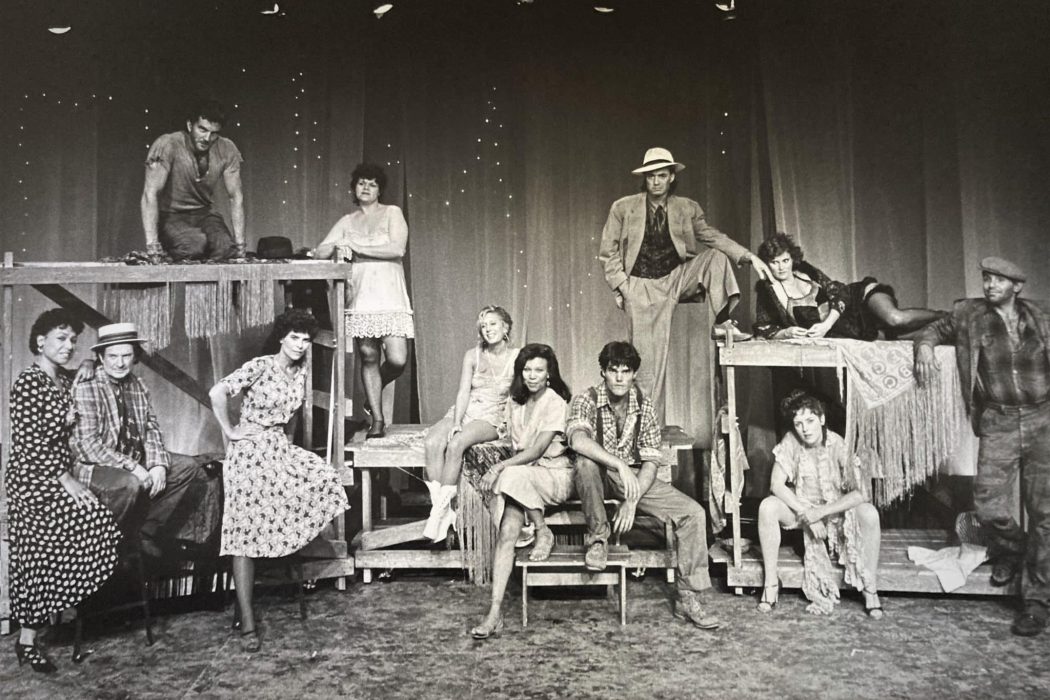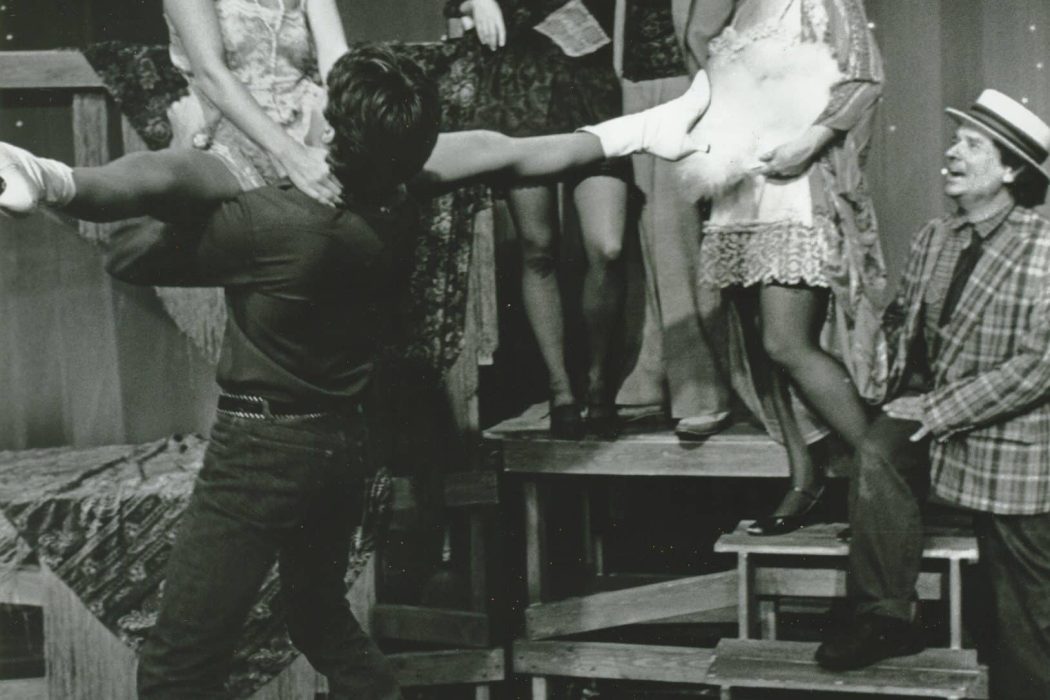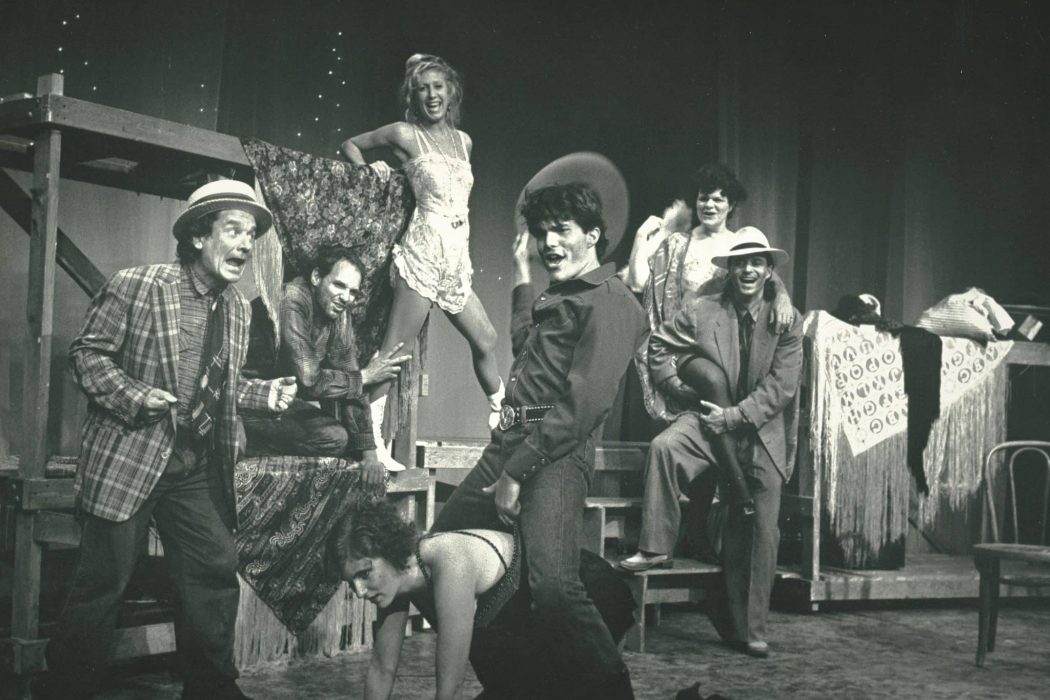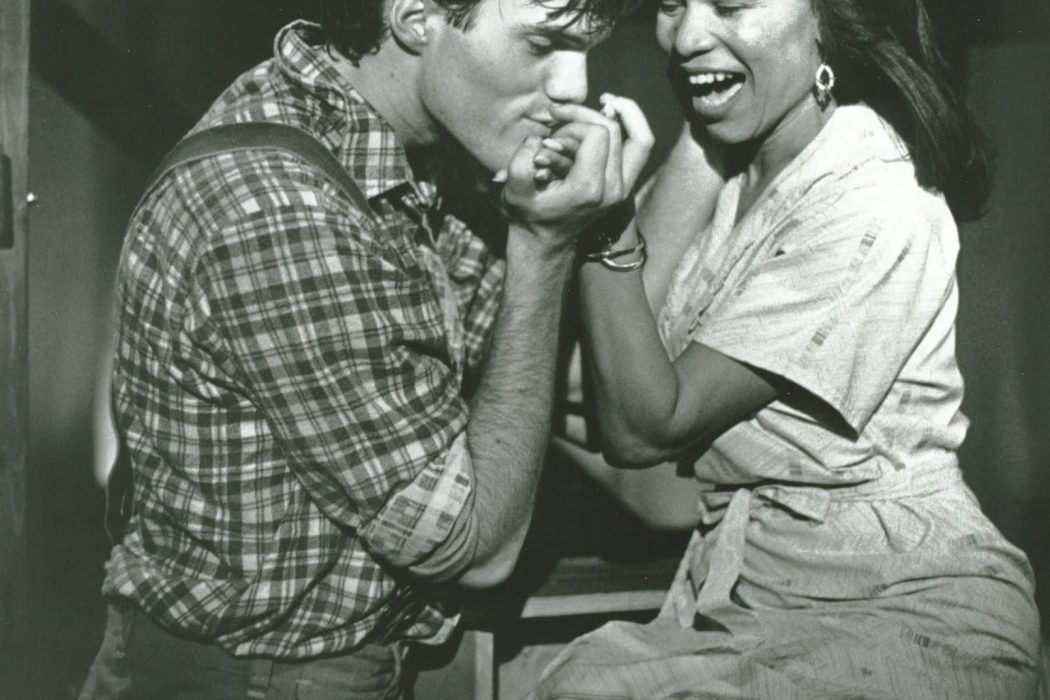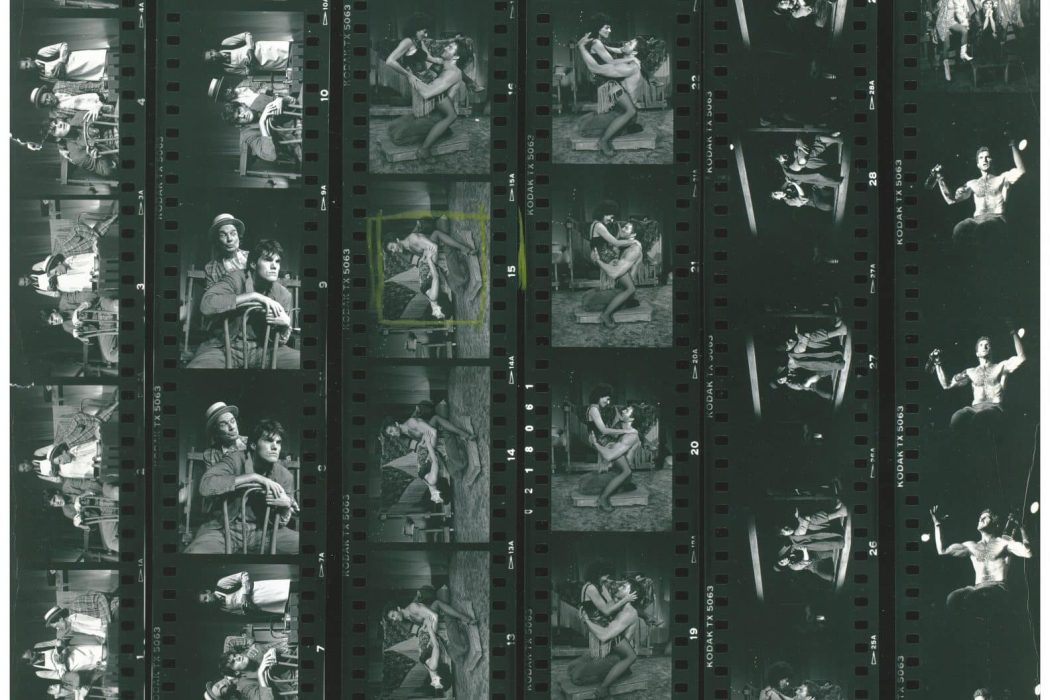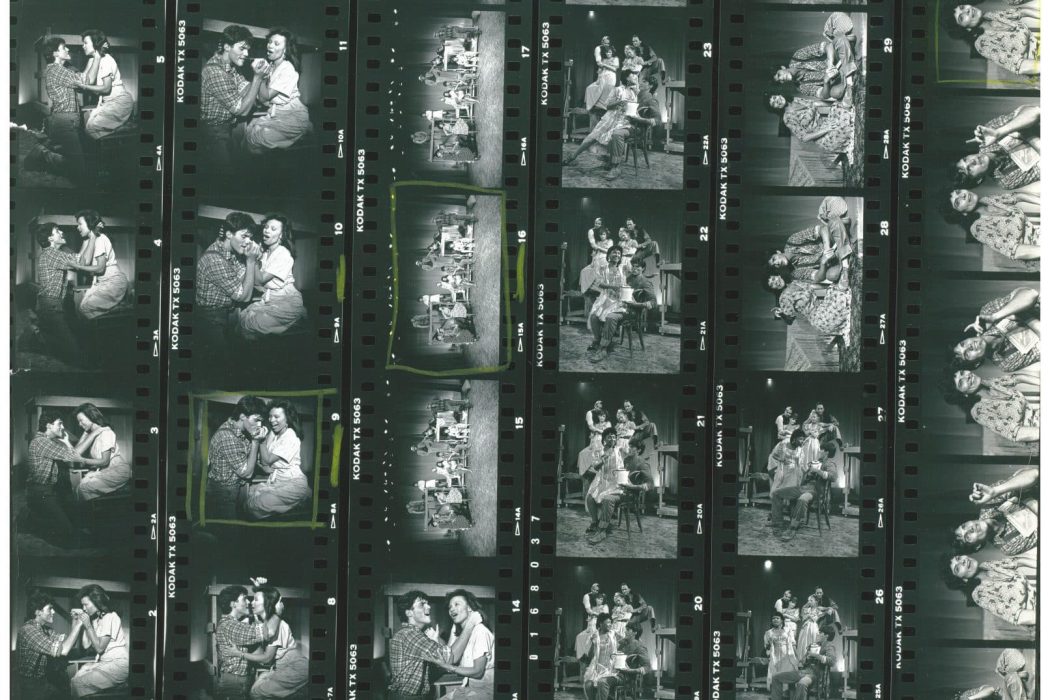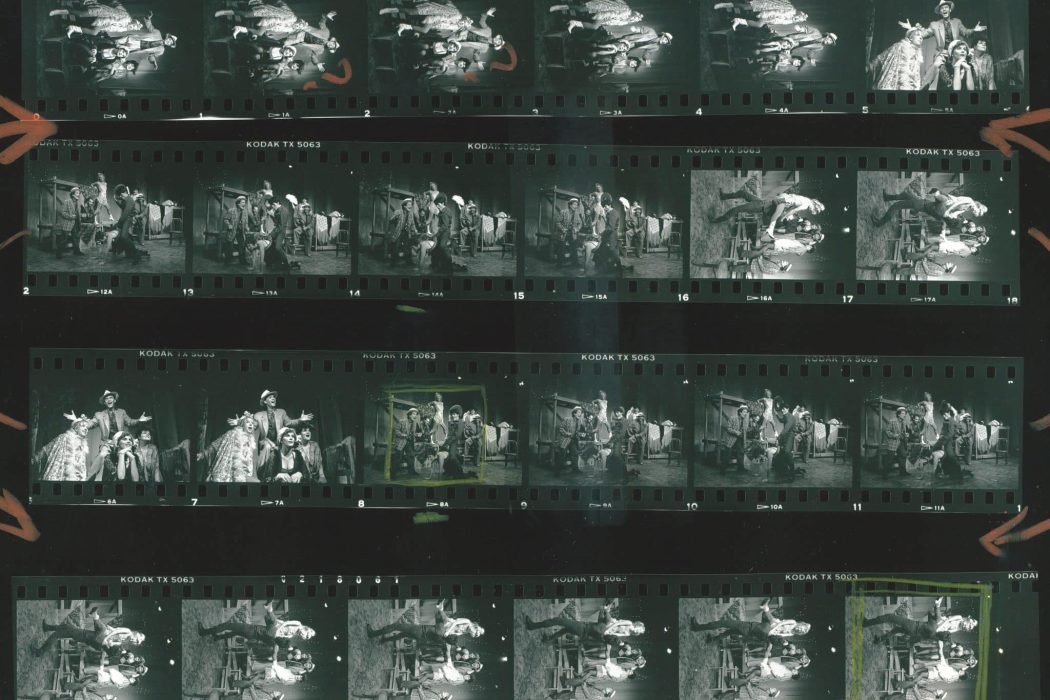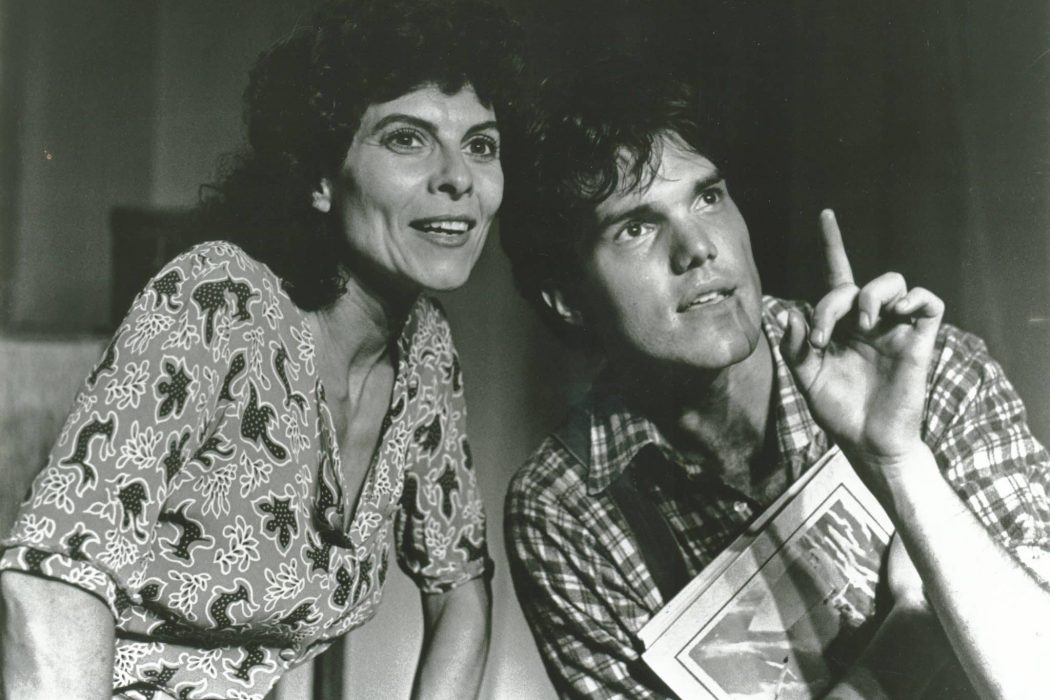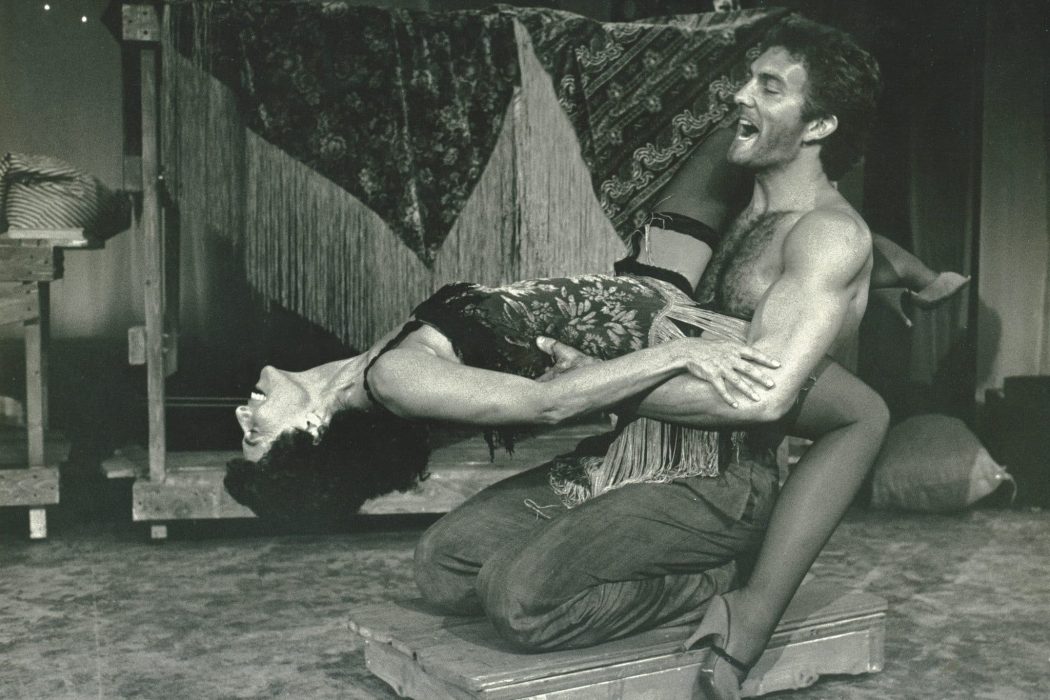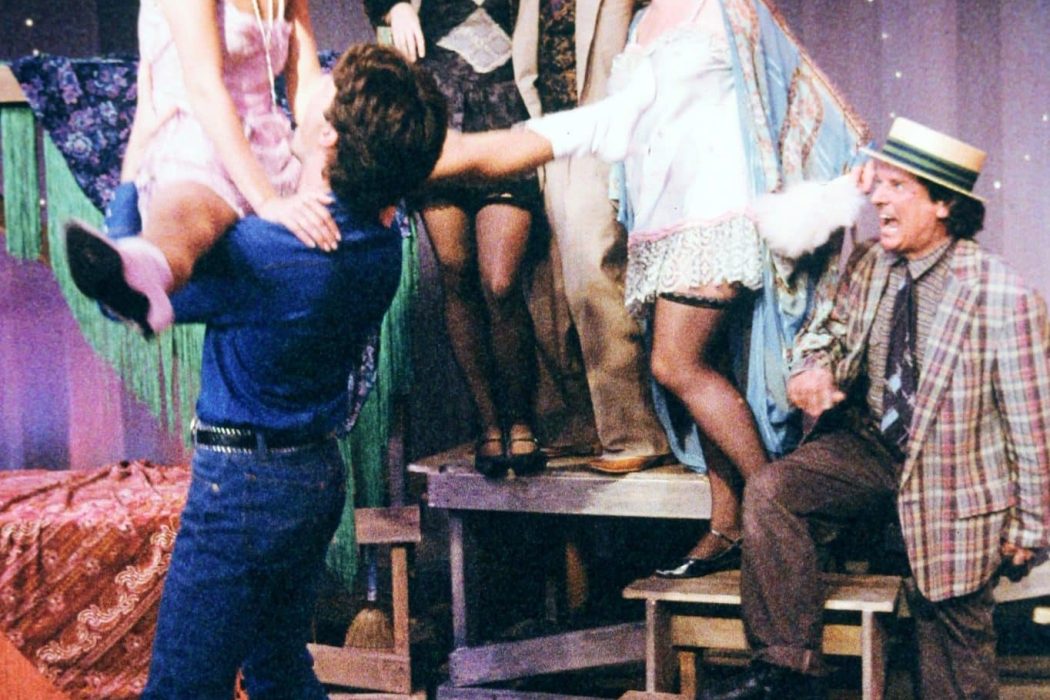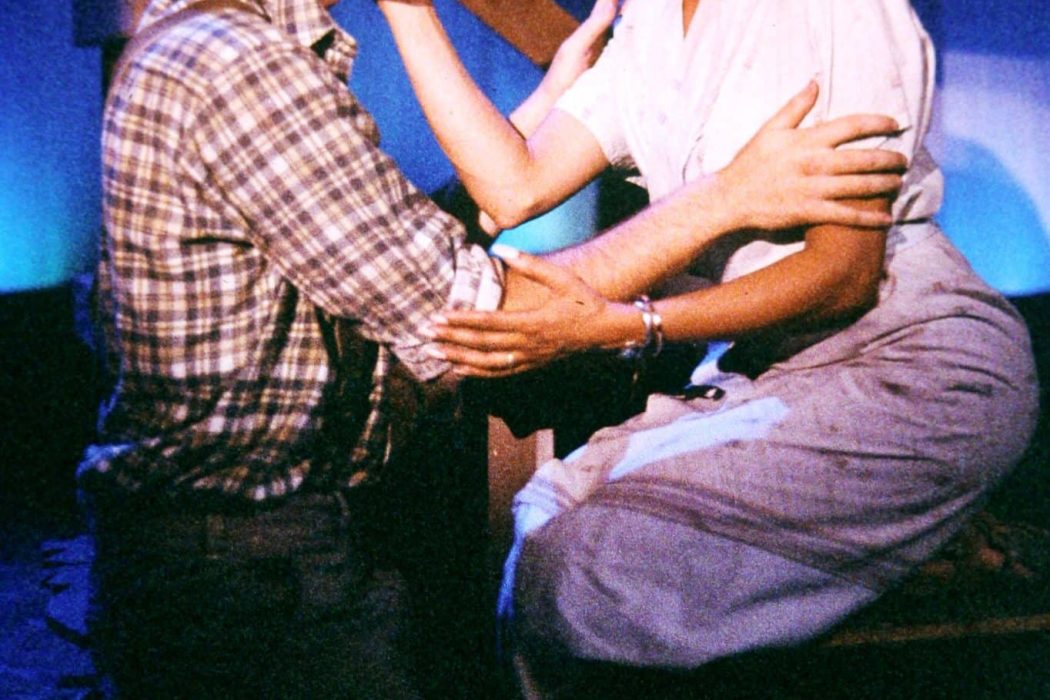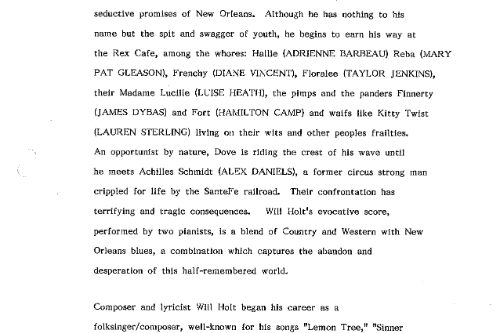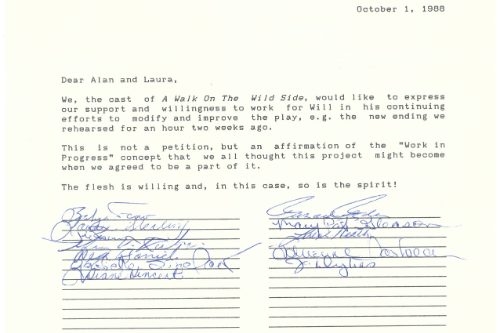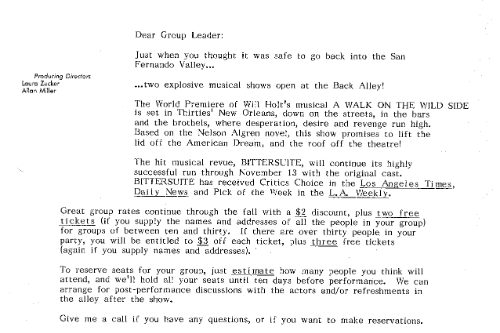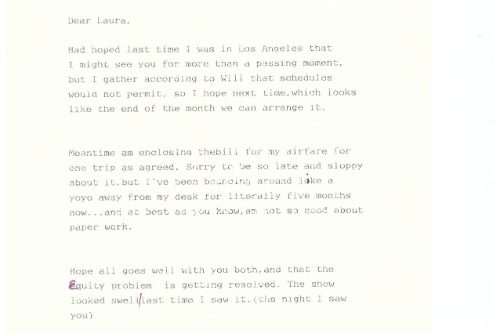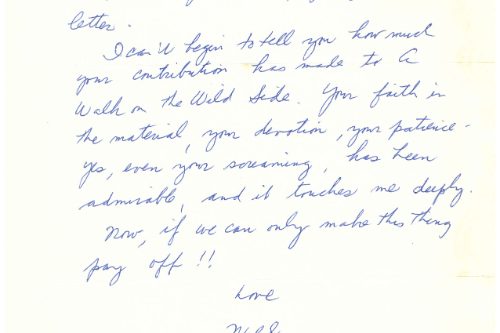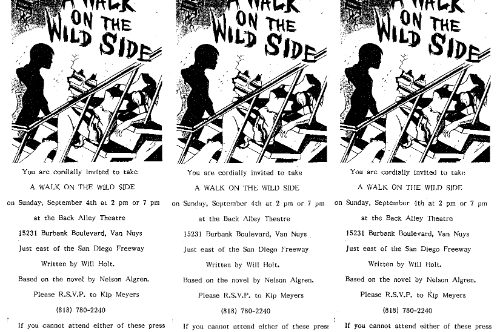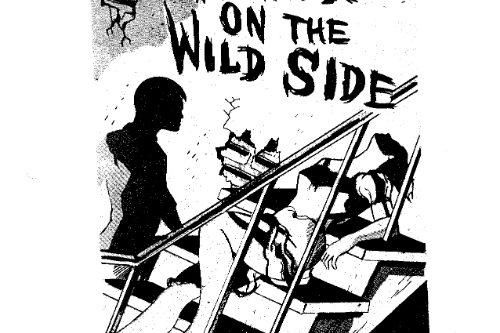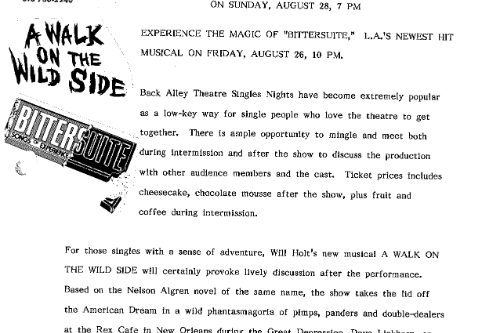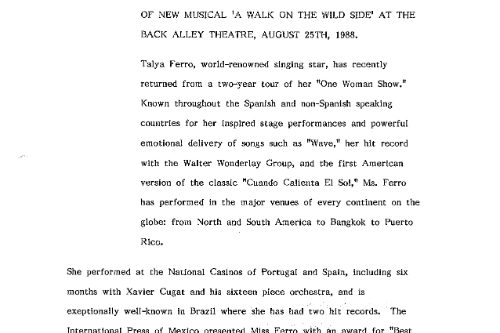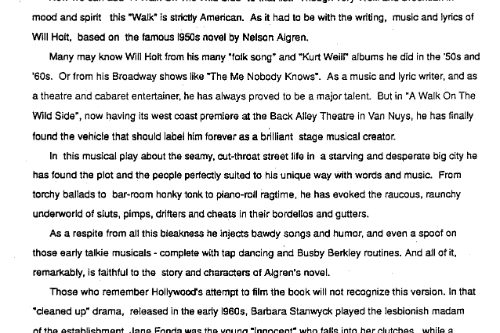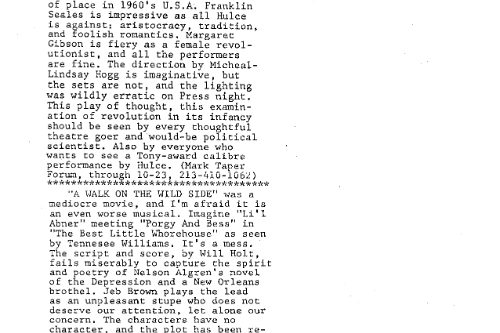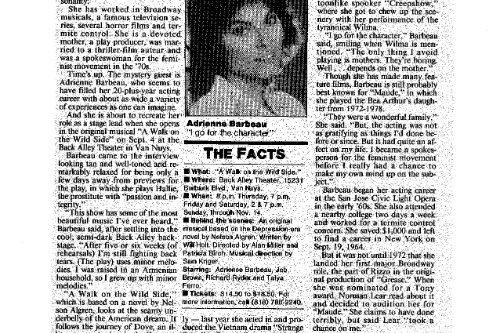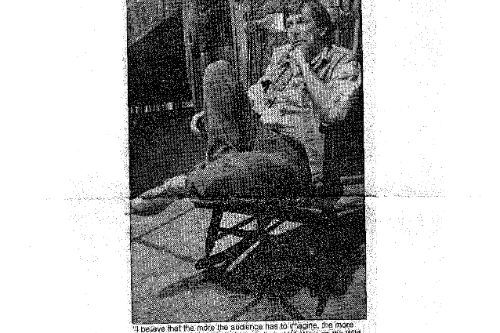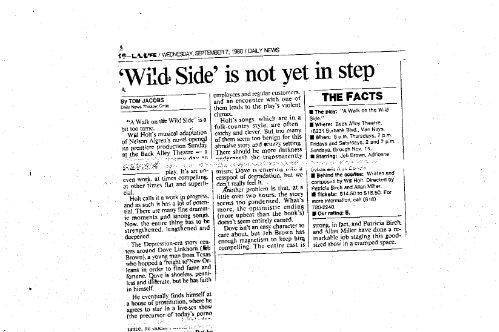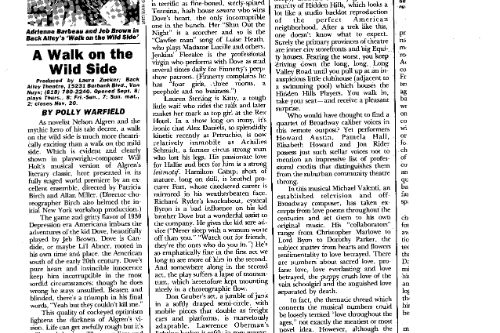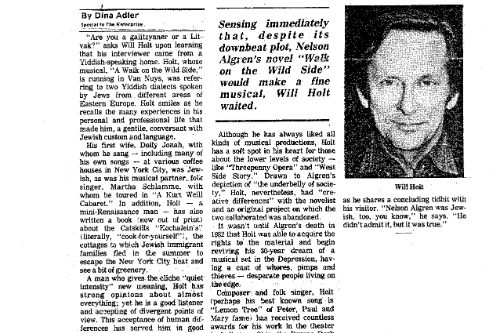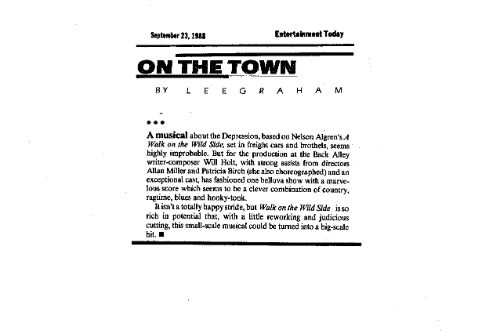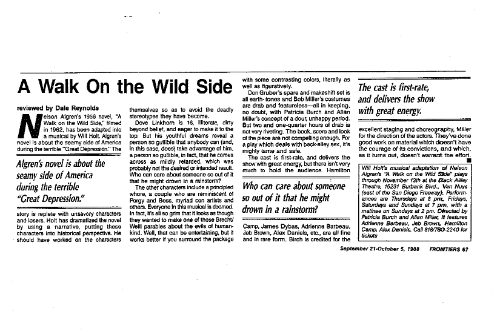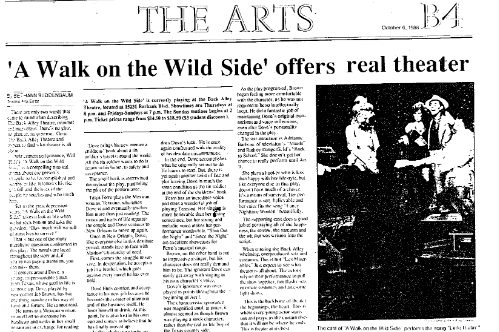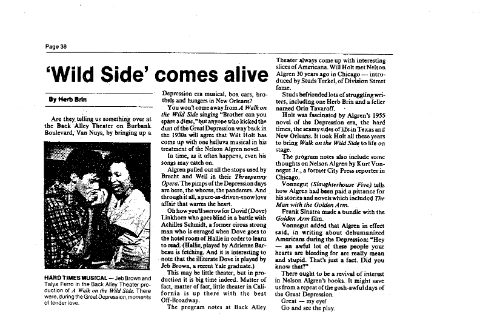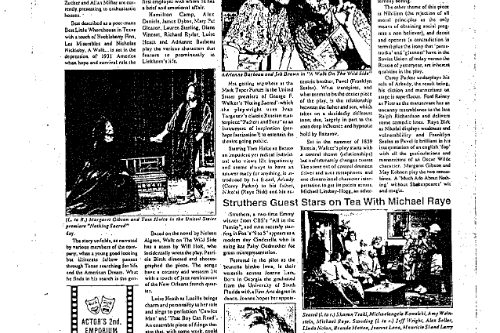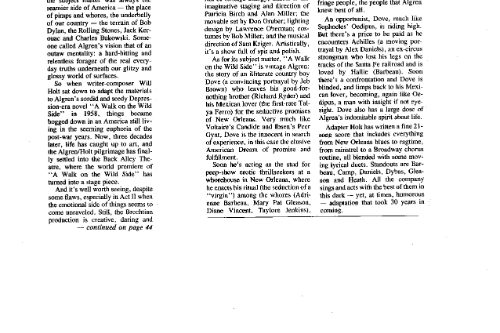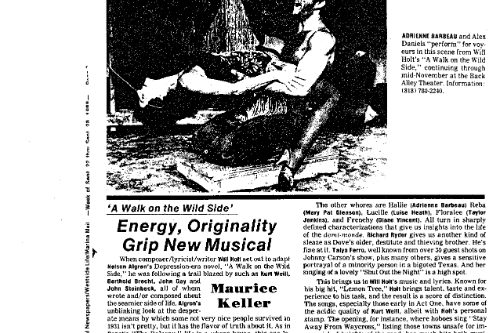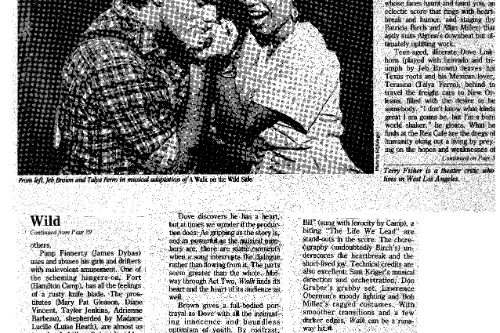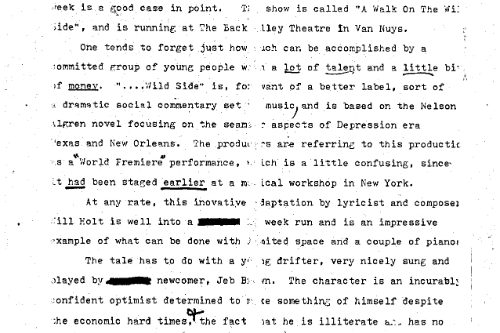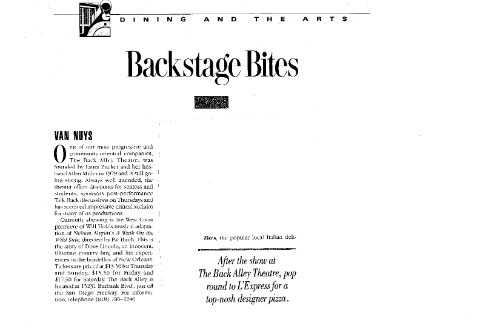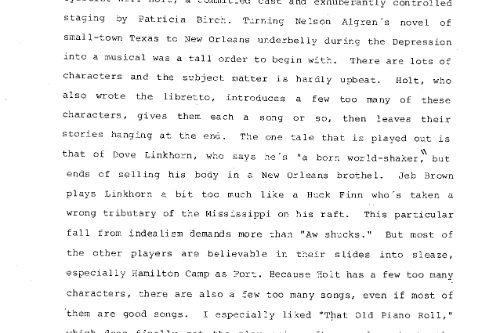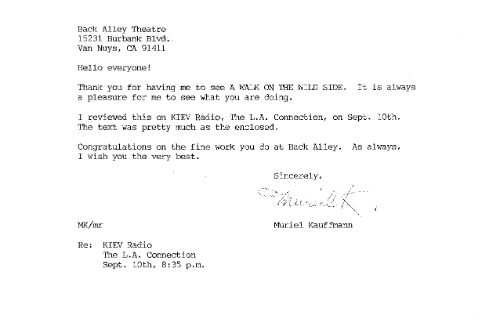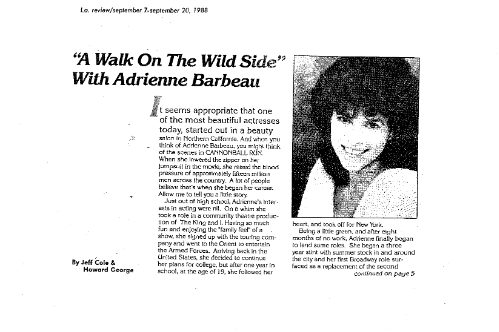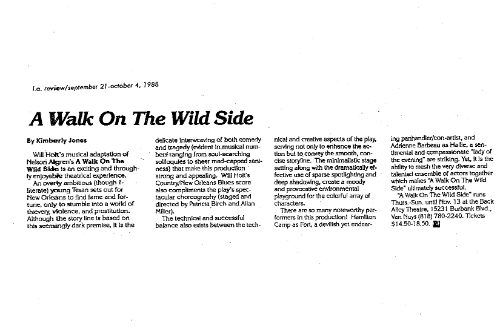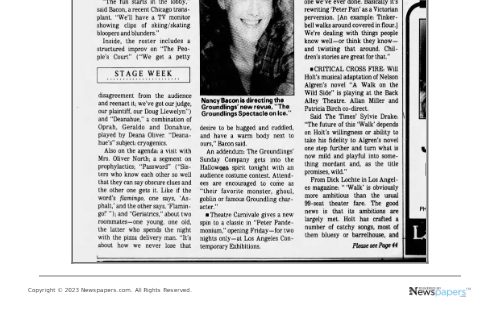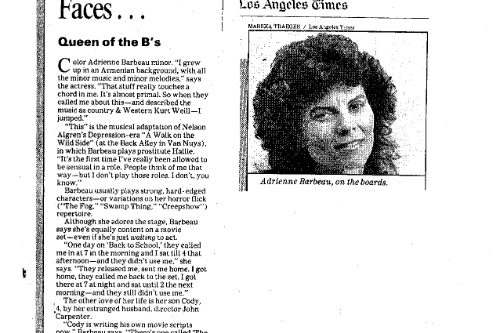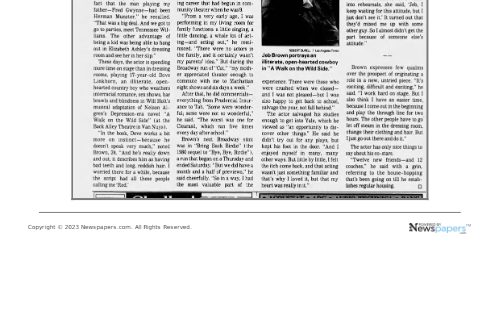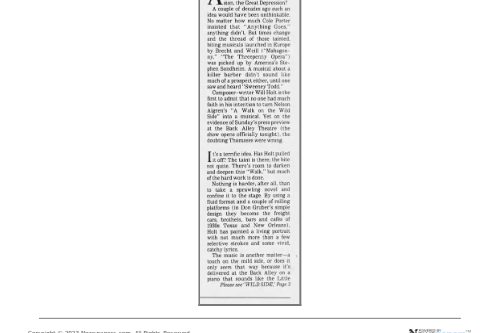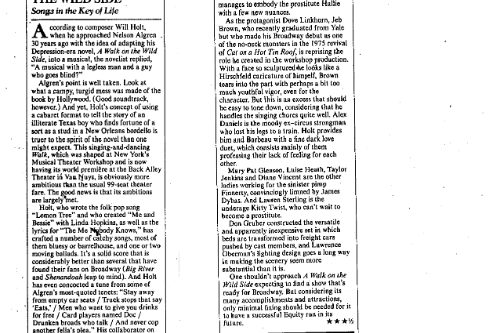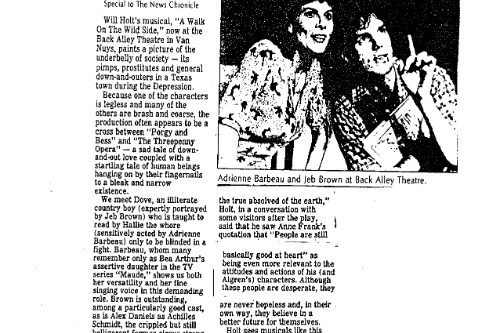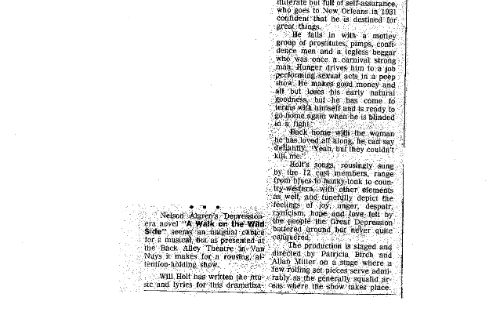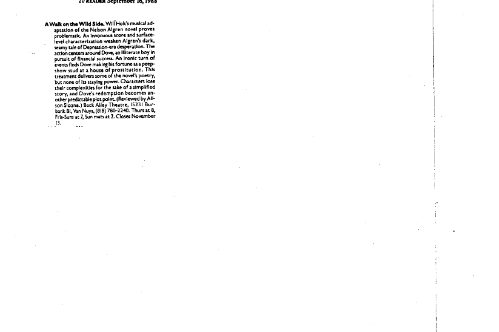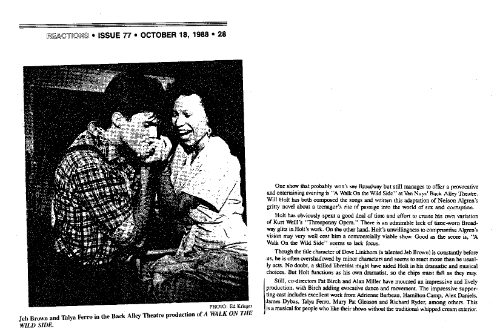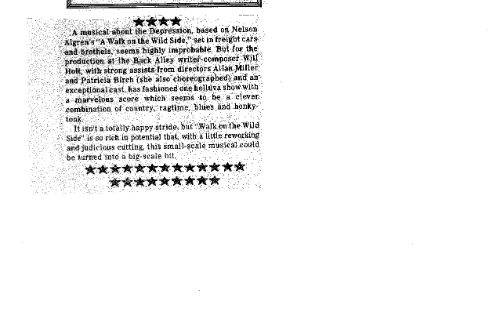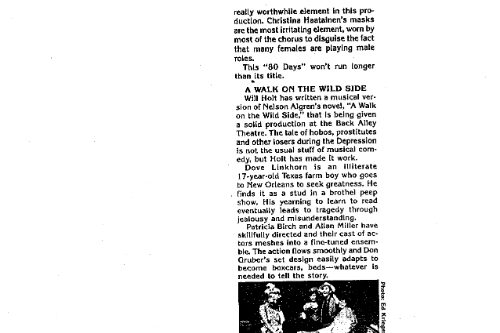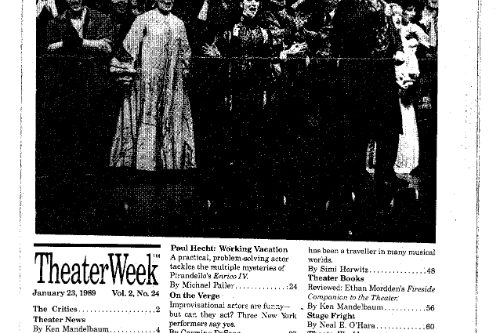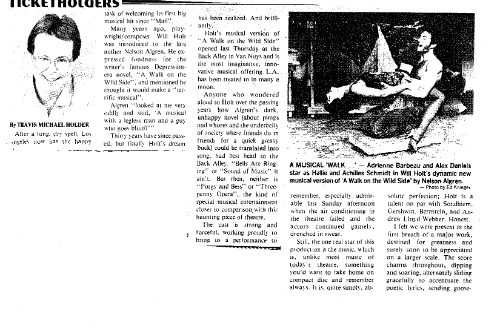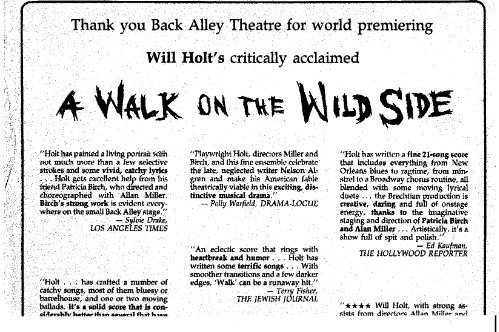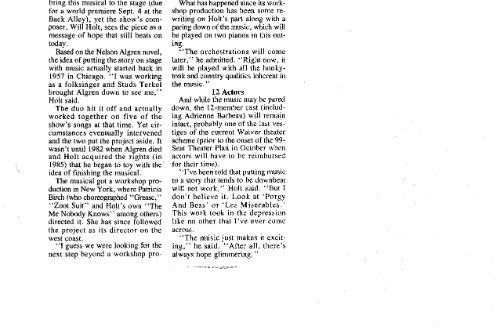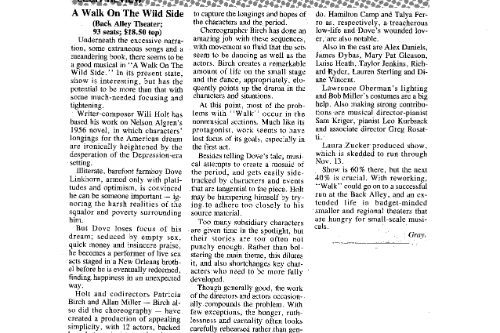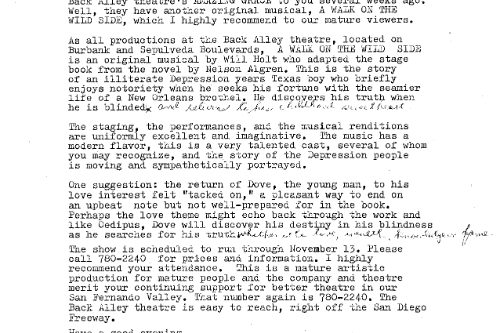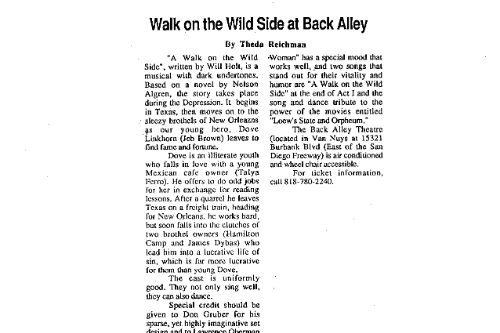Introduction
Written by Nelson Algren in 1956, A WALK ON THE WILD SIDE is the story of the underbelly of life in depression-era America, the one we don’t want to see. In a gritty telling that doesn’t look away, an ambitious, illiterate young Texan sets out for New Orleans to find fortune, only to stumble into a world of thievery, violence and prostitution. It is most often quoted for Algren’s “three rules of life”: “Never play cards with a man called Doc. Never eat at a place called Mom’s. Never sleep with a woman whose troubles are worse than your own.”
Will Holt, a songwriter whose lyrics for the 1970 musical “The Me Nobody Knows” were nominated for a Tony Award, and whose folk song “Lemon Tree” became a musical signpost of the 1960s, was introduced to Algren by Studs Terkel while performing in Chicago and started to adapt the novel into a musical the year after it was published. Thirty years later it had its world premiere at the Back Alley Theatre in 1988.
Workshopped in New York in 1987 with Pat Birch choreographing (Grease, Zoot Suit), the 24-year-old Jeb Brown, who originated the role of Dove Linkhorn in NYC, came out for the Back Alley production and was joined by a powerhouse LA cast without a weak link: Adrienne Barbeau, Hamilton Camp, Alex Daniels, James Dybas, Talya Ferro, Mary Pat Gleason, Luise Heath, Taylor Jenkins, Richard Ryder, Lauren Sterling and Diane Vincent. Allan co-directed.
Will Holt’s score, performed by two pianos, blended ragtime, country and western, honky-tonk and blues. The production was stripped down, ingeniously using large rolling carts as the scenic elements, designed by Don Gruber. Variety said, “Choreographer Pat Birch has done an amazing job, with movement so fluid that the sets seem to be dancing as well as the actors.”
The reviews though were all over the map in what the LA Times referred to ‘critical crossfire.’ Some thought the show was brilliant and destined for a long life, some couldn’t believe a musical about lowlife in which, like Oedipus, the protagonist is blinded at the end to achieve insight, could make it. Those critics turned out to be right; to my knowledge A WALK ON THE WILD SIDE was never produced again, although it wins my personal award for the musical most deserving of a future. I don’t think you can even access the book and score any more as it was never published.
Will Holt said, “We did it for Jimmy Nederlander, who kept saying, ‘It’s a downer. It’s a downer.’ I said, ‘What do you call Les Miz?’ He said, ‘It’s an upper. It’s a love story.’ I said, “Where’s the up?” He said, “The grosses.’”
Algren noted, “The book asks why lost people sometimes develop into greater human beings than those who have never been lost in their whole lives. Why men who have suffered at the hands of other men are the natural believers in humanity, while those whose part has been simply to acquire, to take all and give nothing, are the most contemptuous of mankind.”
–Laura Zucker


